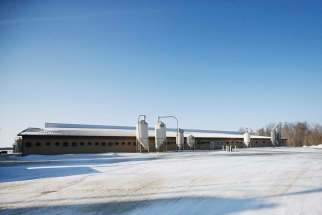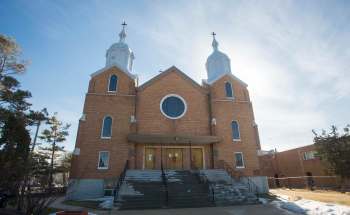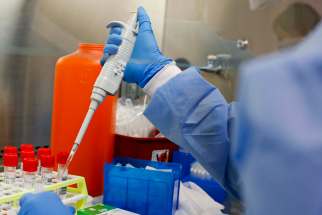Manitoba adds COVID-19 variant found in South Africa to screening list
Read this article for free:
or
Already have an account? Log in here »
To continue reading, please subscribe:
Monthly Digital Subscription
$0 for the first 4 weeks*
- Enjoy unlimited reading on winnipegfreepress.com
- Read the E-Edition, our digital replica newspaper
- Access News Break, our award-winning app
- Play interactive puzzles
*No charge for 4 weeks then price increases to the regular rate of $19.00 plus GST every four weeks. Offer available to new and qualified returning subscribers only. Cancel any time.
Monthly Digital Subscription
$4.75/week*
- Enjoy unlimited reading on winnipegfreepress.com
- Read the E-Edition, our digital replica newspaper
- Access News Break, our award-winning app
- Play interactive puzzles
*Billed as $19 plus GST every four weeks. Cancel any time.
To continue reading, please subscribe:
Add Free Press access to your Brandon Sun subscription for only an additional
$1 for the first 4 weeks*
*Your next subscription payment will increase by $1.00 and you will be charged $16.99 plus GST for four weeks. After four weeks, your payment will increase to $23.99 plus GST every four weeks.
Read unlimited articles for free today:
or
Already have an account? Log in here »
Hey there, time traveller!
This article was published 08/03/2021 (1736 days ago), so information in it may no longer be current.
Roughly 2,000 COVID-19 samples collected over the past five weeks will be scrutinized by scientists at Cadham Provincial Laboratory to tease out an unknown number of the more contagious B.1.351 variant.
Manitoba’s top doctor ordered the additional review of all viable samples collected since Feb. 1, now that the province has established a protocol to identify possible cases of the novel coronavirus variant first detected in South Africa.
“To ensure we have a better understanding of the impact of that variant in Manitoba, we are screening samples from all tests to the beginning of February right now,” chief provincial public health officer Dr. Brent Roussin said Monday.
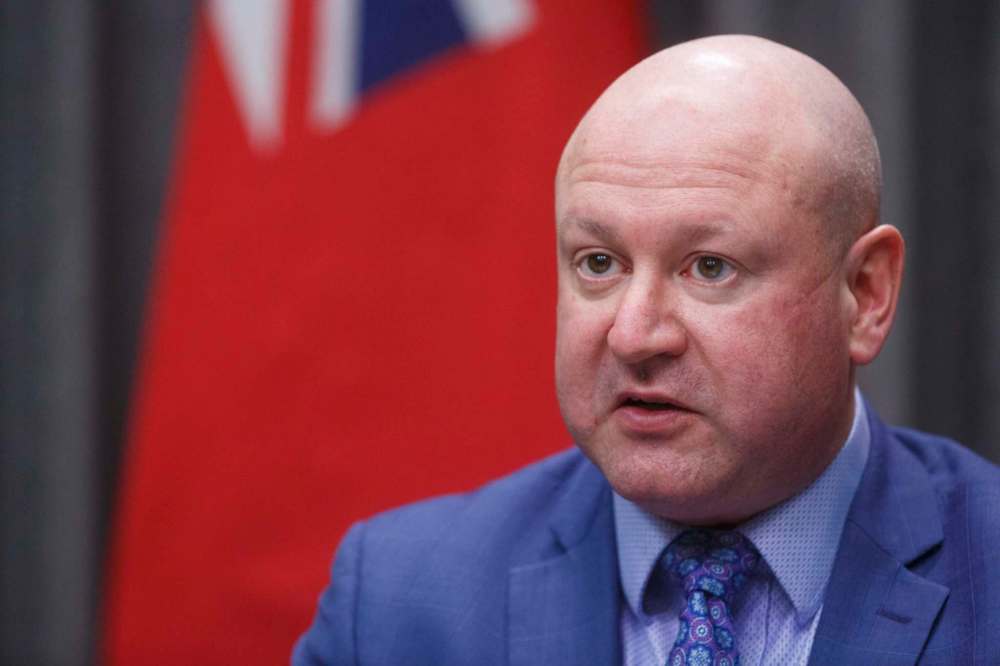
“This retrospective work is not a typical approach, but we wanted to ensure we had a good understanding of our variant situation here in Manitoba.”
Previously, the provincial laboratory was only on the lookout for B.1.1.7 — a more transmissible type of the virus first found in the United Kingdom — by searching for its genetic markers.
It wasn’t until the last week of February the province also began screening for B.1.351 and the P.1 variant of concern (first detected in Brazil). Roussin said screening for B.1.351 was not introduced at the same time as B.1.1.7, as it takes time to develop and validate tests.
“… we wanted to ensure we had a good understanding of our variant situation here in Manitoba.”
– Dr. Brent Roussin
About five per cent of all positive samples, and samples flagged by provincial laboratories, are then sent to the National Microbiology Lab in Winnipeg for complete genetic sequencing to confirm variants of concern.
So far in Manitoba, nine cases of COVID-19 have been linked to a variant of concern: six B.1.1.7 and three B.1.351, which was first found in the province March 2.
Manitoba public health officials have not reported any public risks associated with the variant cases and most are said to be travel-related, though some case investigations continue.
“We don’t anticipate that there are significant, immediate risks right now,” Roussin said.
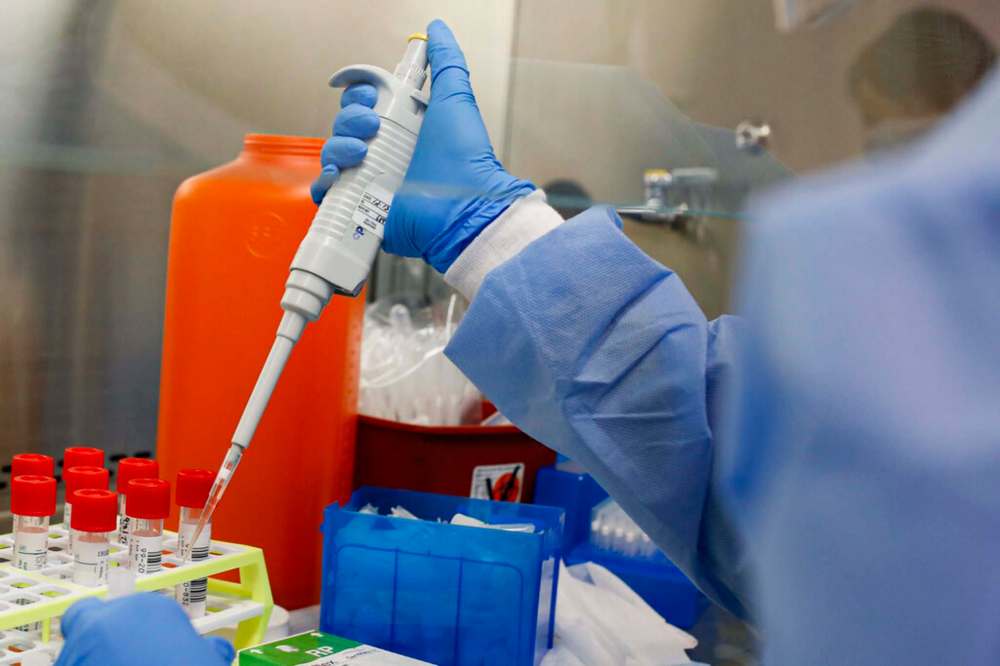
Dr. Philippe Lagacé-Wiens, a medical microbiologist at St. Boniface Hospital, said the process to validate a laboratory screening test can take up to four weeks and requires hundreds of trial runs. It is also dependent on the availability of confirmed positive and negative B.1.351 samples.
“That process needs to happen before you can start utilizing a test in a widespread fashion,” Lagacé-Wiens said. “This is all good laboratory practise; you can’t just open up a cookbook and say this recipe will work.”
Screening can also generate unexpected results, Lagacé-Wiens said, pointing to the disclosure of probable B.1.1.7 cases in the North last month that were ultimately determined to be variants previously found in Manitoba. Those samples were flagged because they passed the screening test, which at the time looked for a deletion in the genetic code of the B.1.1.7 variant, Roussin told reporters on Feb. 16.
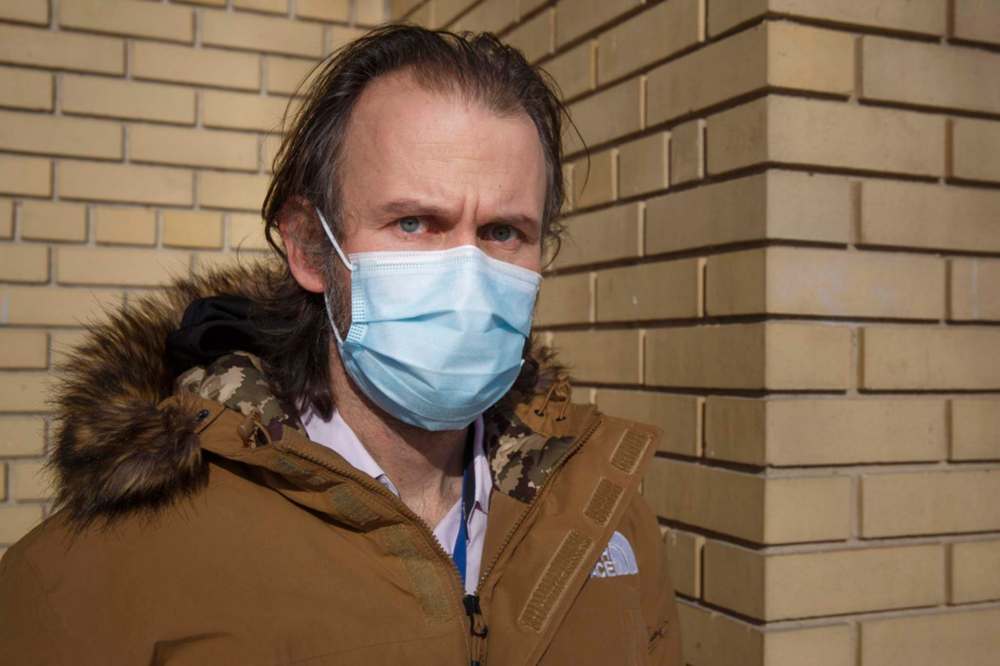
“It’s events like that trigger review of the whole validation process,” Lagacé-Wiens said. “It’s really quite critical to get it right. You don’t want false negatives, you don’t want false positives, and there’s that very significant demand from the public to get tests right.”
Meanwhile, the province reported 63 new infections Monday and one more death due to COVID-19: a woman in her 80s from the Northern Health region.
A death previously announced Dec. 29, 2020 — a woman in her 90s from Winnipeg — was removed from the pandemic death toll after further investigation determined it was not related to COVID-19, Roussin said.
“It’s really quite critical to get it right. You don’t want false negatives, you don’t want false positives, and there’s that very significant demand from the public to get tests right.”
– Dr. Philippe Lagacé-Wiens
Since the pandemic began, 907 Manitobans have died from COVID-19.
New cases were reported in Winnipeg (25), Northern Health (36) and Southern Health (two).
The provincial five-day test-positivity rate was 3.5 per cent.
Roussin said Manitobans need to remain vigilant to keep the spread of COVID-19 at a minimum, particularly as pandemic restrictions continue to be relaxed, to allow the vaccination rollout to continue.
“It’s very challenging to do that if we had our 10 or 14 per cent (test) positivity that we were seeing earlier on (in late 2020),” Roussin said. “There’s absolutely reason to be optimistic right now, but that doesn’t mean we can let our guard down.”
On Monday, the top doctor said, since public health began loosening code red orders Jan. 23, there have been no notable transmission trends in the southern half of the province.
In northern Manitoba, where daily case counts remain high, a number of First Nations communities are still finding cases related to outbreaks, and cases continue to be detected in Thompson, Roussin said.
danielle.dasilva@freepress.mb.ca

Our newsroom depends on a growing audience of readers to power our journalism. If you are not a paid reader, please consider becoming a subscriber.
Our newsroom depends on its audience of readers to power our journalism. Thank you for your support.
History
Updated on Tuesday, March 9, 2021 2:00 PM CST: Clarifies source of reason for flagging possible northern B.1.1.7 variant cases last month.


